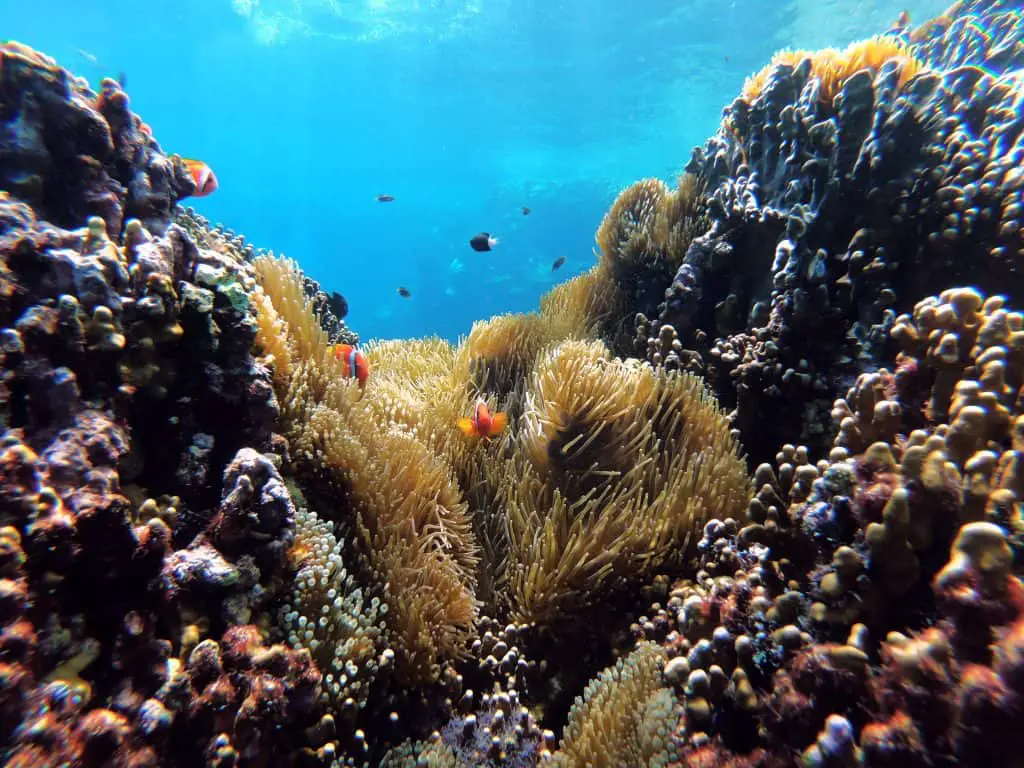Balance and sustainability are essential for quality existence. Nature’s ecosystems are at risk today because of the unchecked use and abuse of its natural resources. Fishing has been a source of livelihood and sustenance for centuries. However, today, the drawbacks of commercial fishing have become a significant threat to marine life, especially coral reefs.
As accountable and responsible inhabitants of this planet, we need to ensure that we take care of our precious assets, also for the next generations. Are you looking to play your part in saving the reefs? Here’s how fishing affects coral reefs and what we can do about it.

What are coral reefs
The design of nature’s organisms is both beautiful and useful. And this is true in the case of coral reefs. They add aesthetic appeal to the ocean floor and are a crucial part of the marine ecosystem.
Coral reefs are referred to as “rainforests of the sea.” They are a colony of invertebrates that grow in shallow waters alongside the coasts of continents. Corals are of varied types and serve different functions. They are homes and breeding grounds for many marine life species. Also, they share a symbiotic relationship with certain types of algae. Particular fish feed on the algae that grow on corals adding to the connection between fishes and corals. They take a lot of time to grow- around an inch a year. And their destruction is detrimental to a marine ecosystem.
To know more, check out the video below.
How fishing affects coral reefs
Fishing affects coral reefs in many ways. Today, especially, fish are not only food for daily sustenance. They’re also used to make medicine, kept as pets, and even décor in numerous resorts and hotels. They’re also fished as a sport, used for luxury leather items, and so on. As a result, oceans and seas are overfished, And this, in turn, has seriously affected marine ecosystems like coral reefs.
Let’s find out how exactly fishing affects coral reefs.
According to a study by marine biologist Mike Gil, overfishing can drastically disrupt the social relationships in a reef ecosystem. He claims that certain non-schooling reef fish mimic those fishes that feed on algae found on corals. When an incidental school of surgeonfish or parrotfish feeds on algae accumulated on corals, other fishes follow suit and also consume the algae.
This prevents algae from growing unchecked and become overbearing on the coral. The algae will cover and suffocate the coral over time. It will destroy the coral’s tissue with its jagged parts and deny its access to sunlight and other sustenance forms.
None of the fish species are strictly schooling species. And this makes each species crucial in the reef ecosystem. Take away a particular species of fish from the coral ecosystem, and you directly affect the feeding habits of the fish that remain. This will leave the growth of algae unchecked and destroy the reef over time.
Also, did you know that Hawaii owes its white-sand beaches to parrot fish poop? These fish literally poop sand:
Fishing and water poisoning
Fishing using cyanide to stun fish is highly destructive to coral reefs. Cyanide is highly poisonous and leaves behind a chemical cloud in its wake. While the bigger fishes can metabolize the cyanide, the smaller marine organisms, including coral polyps, are left poisoned.
WWF’s 2003 article titled ‘Cyanide: an easy but deadly way to catch fish’ addressed this problem. The article quotes marine biologist Sam Mamuang of the International Marine Alliance (IMA), Philippines. He states, “A square meter of reef is destroyed for every live fish caught using cyanide.”
The lack of policing such activities in South East Asian countries has been an enormous problem. What becomes evident is the rapid destruction of marine ecosystems and issues of morale in the governing bodies.
Here’s a video on cyanide fishing in Southeast Asia:
Direct destruction – trawling, blast fishing and other types of destructive fishing practices
Fishing by trawling destroys a coral reef upon contact. This is because trawling involves dragging and pulling fishing nets through the water and along the ocean floor. When a trawler drags its net to fish in shallow waters where corals are abundant, it obliterates the entire ecosystem in a short amount of time.
The same goes for blast fishing. Blast fishing is done using dynamite. It is an extremely potent explosive that stuns or kills fish and destroys the ecosystem that sustains them. None of these methods are sustainable, especially when done at a commercial scale, and must be checked strictly.
Check out this video to know more.
Other destructive fishing activities include anchoring on coral reefs while fishing. Using fishing gear like ghost traps and lead weights, too, can prove fatal.
What we can do about fishing affecting coral reefs
There are several actionable steps we can take to prevent the destruction of corals. We can:
- Spread awareness about the destructiveness of fishing on coral reefs. This could be through rallies, spreading the word on social media, etc. and teaching your kids
- Inform authorities if any illegal and destructive fishing methods are being carried out on coral reefs.
- Think twice before investing in fishing related products that can potentially cause harm to coral reefs. And be creative about waste.
- Avoid recreational fishing activities that may harm coral ecosystems. Making sure that you practice what you preach is essential.
If humans have the power to destroy, they most certainly also have the power to preserve and protect, e.g. with the help of fish hatcheries. Educating yourself about the consequences of ecosystem destruction and taking the responsible steps are crucial.
Do look at the sources linked to understanding how fishing affects coral reefs better and what we can do about it. Let us be responsible and take the right steps to ensure our reefs are protected. Our reefs need us; may we do our part.